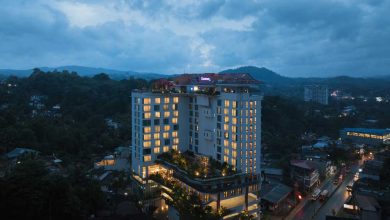EDUCATION, DISCIPLINE AND PRAGMATISM
It was indeed an honour to be invited for forum on Tuesday 24 July at CA Headquarters on topical subject: “Budget Proposals for 2019/20 for Human Capital Development” under the aegis of the Chairman and the Governing Council of the National HR Development Council, together with the Institute of Chartered Accountants of Sri Lanka, the International Chamber of Commerce SL and the Daily FT. The Chief Guest was Hon. Eran Wickramaratne, State Minister of Finance and Guest of Honour, H.E. Bryce Hutchesson, Australian High Commissioner to Sri Lanka.
The panelists for discussion had equally eminent personalities such as Mr. Dinesh Weerakkody, Chairman NHRDC & ICC who was also the moderator, Dr Harsha Athurupana, Lead Economist, World Bank, Mr. Ranjith Pandithage, Chairman DIMO, Mr. Kanishka Weerasinghe DG, EFC, Mr. Sunil Hettiarachchi, Permanent Secretary Ministry of Education, Mr. Jagath Perera, President CA Sri Lanka, Prof Ajantha Dharmasiri, Director and Chairman of the Board of Management P.I.M and President IPM and the renowned Dr. Chandra Embuldeniya Council Member NHRDC who also made a telling presentation with facts and figures that shocked many and indeed set the tone for the lively discussion that followed.
I would start by referring to Dr. Chandra Embuldeniya’s presentation wherein one of the slides had it that out of a total of 30,819 who graduated from ‘Degree Programs and Graduated in 2016’ as many as 52% [16,000 graduates] passed out from streams of ‘Arts & Oriental Studies’ and another 19% [5733 graduates] passed out from ‘Commerce & Management Studies’. This means that as much as 71% of passed out graduates from Sri Lanka’s universities had chosen non-technical/science, math subjects.
Accordingly disciplines such as Veterinary Science [B.V. Sc.] had a mere 0.2% along with Dental Surgery [B.D.S] also 0.2%; Architecture & Quantity Surveying 0.7%, Indigenous Medicine 0.7%, Law [LLB] which broke the 01% ‘barrier’ with 1.3% [403 graduates] Paramedical Studies 1.8%, Agriculture B.Sc 2.9% then Computer Science/IT/ICT/MIT 3.4%, significantly Medicine M.B.B.S. just only 3.7% [1143 graduates]; then came Engineering B.Sc [Eng] a pathetic 4.9% and B.Sc in Science under 10% at 9.6%.
So whilst the strident cry is to have more medical doctors, engineers, IT specialists etc., Sri Lanka still naively and unwisely churns out over 70% whose knowledge is not in sync with the needs of the nation. With such damning data available, what have we done or indeed doing about it?
When someone said most of the graduates who have made it a virtual daily habit of inconveniencing the public by blocking major roads especially in Colombo [and now even the Kandy Road] are mostly those pursuing ‘Arts Subjects’ appears to have a ring of truth! After all around 300,000 students sit for the GCE Advanced Level and some 160,000 qualify but only around 30,000 enter Campus – out of which some 71% follow non-tech/science/math subjects! How on earth could we fill the high demand for Doctors, Engineers, Quantity Surveyors, Architects, Botanists, Agriculturists, IT experts on cusp of digital age?
It was stated at the outset that as much as well carpeted roads, shiny bridges and impressive buildings are important, what is more urgent is to develop our Human Capital. And that entails educating and equipping our youth with the required skills, knowledge and more significantly, correct attitudes.
Obviously ‘Education’ as prevailing presently in SL needs a pragmatic paradigm shift, period! Jagath Perera in his introductory address said that ‘we need to learn, unlearn and re-learn’ – so true! So is our ‘Education’ oriented to needs of 21st Century? The answer is an emphatic ‘NO’. Sad, but true!
The Australian High Commissioner disclosed how all plumbers, carpenters, masons, brick-layers etc., whom we disparagingly call ‘Baas Unnahe’ are referred to as ‘Tradesmen’ in Australia – they are effectively trained and duly skilled to take up assignments in construction and other relevant fields. So much so these ’Tradesmen’ have prospered to emerge as millionaires and drive fancy cars in Australia!
Trishaw Drivers: Boon or Bane?
Conversely some 14% of the productive work force in SL become unskilled Three-Wheeler Drivers. No wonder carpenters, electricians, masons etc are a dying breed here as most potential carpenters, masons etc end up driving Trishaws! Although feeble attempts are being made to refer to Trishaw Drivers as those involved in a valued profession, let us stop treating this lot with kid’s gloves! We must prevent late teens to drift along and become 3-wheeler drivers by default. Potential Trishaw drivers should make a formal application to take up profession as one; after proper screening with physical, psychological, mental and aptitude tests and on passing with Diploma, let the Police Driving School take them on and give them a thorough training of Do’s & Don’ts. Those with aptitude to enter the Tourism sector should be so trained in all relevant disciplines where they would emerge as vital Human Capital assets of Sri Lanka!
Back to reality: Is our archaic, and mostly irrelevant ‘Education’ only producing Trishaw drivers, housemaids and lowly peons and security guards? This IS a National calamity if not addressed immediately and pragmatically. Education or lack of it is gradually stifling SL’s progress. Seriously, no external threat is needed to destroy Sri Lanka! Poor Quality and irrelevant education and even turning a blind eye to blatant cheating would only weaken and eventually destroy our beloved nation.
Let me reproduce below an apt WhatsApp message:
“Destroying any nation does not require the use of atomic bombs or the use of long-range missiles. It only requires lowering the quality of education and allowing cheating in the examinations by students.”
“Patients die at the hands of such doctors; buildings collapse at the hands of such engineers; money is lost at the hands of such economists & accountants; humanity dies at the hands of such religious scholars; justice is lost at the hands of such lawyers and judges; governance is lost at the hands of such legislators – “The collapse of education is the collapse of the Nation.”
What needs to be done?
For a start we need to address the huge gulf in overall standards between so-called ‘Established Colleges’ in Colombo, Kandy, Negombo, Galle, Matara, Kurunegala etc and general standards in schools elsewhere. One of the core reason why our students are mostly uncompetitive stems from this mismatch, period!
[1] We need to ensure that ALL schools have the fundamentals right – qualified, able teachers, computer and science laboratories and relevant infrastructure conducive for effective learning. Sounds Utopian but unless our authorities make a concerted effort in bridging this gap – the desperate need to find ‘big schools’ will continue to be the primary aim of parents and their children residing away from urban areas. [1.1]The profession of Teaching needs due recognition and to be upgraded conforming to global standards. Isn’t it ironic that many present day so-called teachers especially in out-of-town areas indulge in all sorts of questionable practices far removed from their core area of imparting knowledge and be role-models for impressionable young students. If Quality Education is the primary goal then ensuring quality teaching methods and indeed Quality Teachers with the correct aptitude is an absolute must.Let me quote Lee Kuan Yew on ‘Teaching & Teachers’:
“If I have to choose one profession in which you give the most for the least, it is probably teaching – if you take it seriously. You have to have the temperament for it to coax, to cajole, to discipline a young mind into good habits. You must have an aptitude.” – Lee Kuan Yew [1966] [1.2] Dr. Ajantha Dharmasiri even suggested that Heads of Schools/Principals of Colleges must be trained in all round excellence associated with the skills of a CEO of a corporate entity. Such should be the ‘new thinking’ if we are to revamp and re-structure SL’s Educational set up as a matter of urgency.
[2] At present our ‘Education’ is ‘Exam-Centric’ stemming from the Primary Stage – this may sound controversial – but we need to scrap the so-called 5th Standard ‘Scholarship Exam’ a.k.a. ‘Shisshathwa’ exam ASAP. In fact much of our attitudinal woes associated with ‘Me First’ syndrome where people are only concerned with themselves – simply being selfish starts off with ‘Dog Eats Dog’ attitude from when our kids [subject to this nonsense] have to ‘cram’ at age of a mere 9 or 10 just to ‘beat all others’ to get over the Shisshathwa hurdle – and anyone who does not get thru is a considered a moron – ‘modaya’! This issue was brought up by Ranjith Pandithage no less – a top corporate leader. Let’s listen to him! [3] In Japan Exams are taboo during formative years of a child who is instead taught to respect others – be it parents, family, colleagues or even strangers; to clean up their classrooms, how to use toilets properly etc in short all possible ‘Social Skills’ – no wonder they would step aside when using Elevators, bow when greeting others and even clean up any room, hall or even a Football World Cup Stadium! Respecting others is in their DNA –surely is it too much to train our kids to be responsible members in society? They want to out-do others, overtake others at any cost, mirrored in the way we behave and act in classrooms, on roads [pastime of tailgating others dangerously!] and evident even in ‘kadays’ and Supermarkets where it is anathema for some to wait in line at paying counters! Sounds familiar, isn’t it?Instilling Discipline – a core and urgent need
[4] Apart from respecting others, a fundamental and urgent need is to instill DISCIPLINE at all levels starting from Pre-School, Primary and Secondary school stages so that by the time students enter the Tertiary part of their education they would mostly display restraint and be adequately disciplined. Too much to ask? Then how on earth could we ever aspire to be another Singapore? For instance in Singapore if you throw litter about on the street or consume food, smoke etc whilst using public transport [MRT etc] you would be fined 500 $. Similarly Jaywalkers would be apprehended and fined heavily. No wonder pedestrians will never dart or saunter across busy highways in Singapore. Why can’t authorities in Sri Lanka do likewise? Such change of behavior must start from Pre-School/Primary stages. [4.1] The patent lack of discipline stemming from SL’s classrooms is clear everywhere one looks, literally – from our chaotic traffic, the scant respect for rules of Highway Code, the irrational ‘death-wish’ that engulfs pedestrians when Jaywalking, push cyclists riding on center of road, motor cyclists zigzagging and weaving thru traffic as if Road Rules do not apply to them. Indeed senior school children must be taught the basics of riding/driving apart from the Highway Code. The minimizing of traffic related fatalities is now a dire and critical need in backdrop of some eight [08] deaths per day. Shouldn’t the classroom also address this critical situation or at least take steps towards creating awareness? Kids will make a change! [4.2] Verifiable research thru global studies has it that there’s a proven link between school attendance, punctuality and school career growth. In short those who are disciplined and punctual and attend school 92% to 95% of the time have shown positive growth which is sustainable all round. Conversely those students who habitually absent themselves from attending school for the flimsiest of reasons, inevitably perform poorly. Consider these research findings: two days of nonattendance a month is equal to 10% absence while four days equals 20%. Poor attendance can influence a child’s proficiency in reading by end of Grade 3. Simply said – if a child cannot read, he/she cannot learn. Period!Are school inspectors in SL regularly checking on student attendance? Or are some Principals and teachers content in ignoring this vital aspect? Some we are told are ‘quite happy’ in having virtually empty classrooms – after all they are paid the same salary as those dedicated school Principals and teachers who are constantly checking and monitoring attendance, punctuality and overall discipline!
[5] Mr. Kanishka Weerasinghe DG of EFC suggested that we follow the German example of exposing, say 15 year old children to corporate / industrial environment by periodic visits so that school kids would know what to expect when they eventually make that transition from classroom to work-life/job. [6] Pragmatism: to equip students with English Language skillsAlthough shunning of a global language such as English was considered politically expedient, reality has at last sunk in to those who matter. In fact a gentleman from the audience related how he insists that all staff he employs – from the highest to the lowest – speak in English. We must salute that pragmatic contribution; let’s extend that vitally important business tool to all spheres and to the classroom: Let’s learn English from the Pre-School and continue in the Primary, Secondary, Tertiary & University stages.
What have most African states, Singapore, West Indies and even Bangladesh have in common? Most of its citizens speak and write English – the way a sizeable proportion of then Ceylon’s population did – until for reasons of sheer political expediency, some short sighted leaders jettisoned English and unwittingly helped to polarize both the Sinhala & Tamil races – the rest was the beginning of the end!
Here let me quote Lee Kuan Yew on the evils of being mono-lingual vs positives of being bi-lingual:
“From my observation, the monolinguist is more likely to be a language chauvinist and a bigot. He only sees the world through one eye. He does not have binocular vision to see the world in depth, to realize that there are as rich, if not richer, worlds of human experience and knowledge, all expressed in beautiful words, elegantly, vividly and fluently in other languages. He does not understand other great civilizations which have expressed themselves in other languages.” Lee Kuan Yew [1978]
In short Sri Lanka needs its people, students in particular to be fluent in the one Global Language and that is ENGLISH – let’s not kid ourselves that English is not important – such gibberish is pontificated by ironically those who are fluent in English and who have studied abroad and sent their kids overseas too to master English – yet for some perverse reasons want our children to be deprived of English! N.B. if any child wishes to aim high in a global context, let him/her be proficient in spoken & written English.
This writer is tri-lingual – thanks to his planting background. Ideally all Sinhalese should learn Tamil and vice versa and both Sinhalese & Tamils be able to speak and write in English. When citizens understand and appreciate each other, soon so-called differences will fade away in a generation or two! An integrated, disciplined society of Sri Lankans could then make that quantum leap towards all round excellence!
We need to restore pragmatism if we are to embrace and establish a MERITOCRACY. Indeed English and Discipline along with the strict adherence to the Rule of Law by all regardless of status will be central and pave the way towards real integration of races to finally emerge as One Nation of Sri Lankans!
SUMMARY
[1] Raise standards and facilities of all schools to obviate necessity of parents seeking ‘Big Schools’. [2] The above should pave the way for abolishing 5th Standard Scholarship Exam. Sooner the better! [3] Take leaf from Japan to inculcate ‘respect for others’ and all possible Social Skills from Pre-School. [4] Move away from ‘Exam Centric’ rote learning to a holistic approach; encourage ‘creating thinking’; no doubt exams are essential but not be thrust upon formative minds especially in Primary stage; allow kids to enjoy their childhood instead of forcing them to study ‘morning, noon and night’ with no time to play! Curriculum in Math and the Sciences/IT, Medicine, Agriculture etc should conform to global standards. [5] Punctuality and attendance enforce discipline. Execution of all areas of discipline is vital throughout school/campus life to make them eventually become disciplined Human Capital assets and not disloyal disruptors and saboteurs as mostly now! What a waste of Human Capital to see these youth on roads, shouting themselves hoarse with placards in hand perhaps on instigation of sinister political elements. [6] Encourage bi-lingual studies at least [ideally to be tri-lingual]. The Sinhala and Tamil children must be proficient in English too to pave the way for them to be globally competitive, apart from being suitable for local corporate sector. Encourage reading from Pre—school stage. If one cannot read then one would be ‘knowledge deficient’. Say NO to mono-lingual studies as it will only encourage chauvinistic bigots! [7] Gradually minimize studies/subjects that are not oriented to 21st Century job markets; curriculum should be geared towards needs of industry/corporate priorities. Common sense, really! [8] Natural aptitudes should be identified during Primary school stages and helped along to blossom using their innate talents and such subjects they are passionate about; move away from force feeding subjects to children just because for instance of emotional choice of parents/grand-parents etc. [9] Education and Human Capital enhancement must be interlocked at planning stage and not in isolation where these vital areas have been ‘allowed’ to drift along aimlessly their separate, irrational ways earlier. [10] ‘Education’ should not be confined to only the School years but be a life-long passion where conditions should be on-going for life-long learning and adding value to self and extended to society. Not only IQ but Emotional Intelligence [EI] should be a priority as EI is considered vital for work-life.DYAN SENEVIRATNE
dyan.sene@gmail.com [Website: www.speakupunlimited.com]
[Dyan Seneviratne is presently a sought after corporate Trainer whose forte is the entire gamut of Business Communication & Leadership. He was a former CEO of IPM, Sri Lanka; currently visiting lecturer, Colombo School of Business; served in World Bank Expert Panel Plantation reforms; also a former Governing Board Member of CMS which includes Ladies College, Hillwood & Morbrey Colleges, Kandy; St. John’s and Chundikuli Colleges, Jaffna where apart from academics and sports, discipline and all round personality development were emphasized – the positive all round results of these Colleges speak for themselves]





